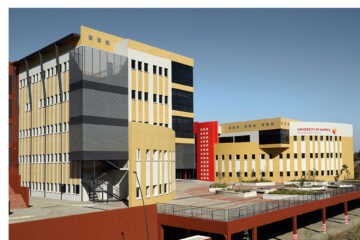Niël Terblanché
The Electoral Commission of Namibia (ECN) reiterated its commitment to delivering credible, free, and fair elections as the nation prepares for its Presidential and National Assembly Elections later this week.
The ECN’s chairperson, Dr Elsie Nghikembua, during a briefing to international observer missions, diplomatic representatives, and media on Friday, stressed the importance of collaboration and transparency in safeguarding democratic values.
Dr. Nghikembua welcomed observers and said they play a key role in enhancing the electoral process.
“Your presence is not only an encouragement to the ECN but also to all electoral stakeholders. You bring expertise, values of impartiality, and a watchful eye that strengthens the overall electoral process,” she said.
She added that election observers and the media have historically acted as catalysts for adherence to ethical and legal norms, fostering public trust in electoral outcomes.
Nghikembua also reported substantial progress in its preparations.
Key achievements include a voter registration exercise that captured 90% of eligible voters and the completion of a special voting process for diaspora citizens, seafaring personnel, and security cluster members.
She said that preliminary data indicates that over 14 200 ballots were cast locally, with an additional 2 147 votes recorded at Namibian diplomatic missions abroad.
She added that challenges were also encountered.
Nghikembua spoke about the logistical hurdles in procuring ballot papers, which necessitated a shift from open international bidding to emergency procurement to meet tight deadlines.
The contract for printing over 1.6 million ballot papers was awarded to Ren Form CC, a Johannesburg-based firm with a proven track record.
“Transparency was maintained throughout the process, with contesting political parties invited to observe the production and delivery of ballot papers,” she explained.
She said that the ECN has partnered with Namibia’s security cluster to ensure safety at polling stations nationwide.
Police officers will be deployed to every station, with additional patrols in potential hotspot areas to preempt disturbances.
“The commission has put in place measures to ensure that voting takes place in a peaceful environment, free of fear and intimidation,” she said.
Nghikembua also addressed the rising threat of misinformation and fake news.
With the proliferation of social media, unverified information poses a significant risk to public confidence in elections.
Dr. Nghikembua appealed to observers and media representatives to prioritize accuracy.
“We all have a responsibility to stop the spread of fake news. Verify information before sharing it and ensure that only reliable sources are used,” she said.
Accreditation of observers and media has been robust, with 453 individuals from 12 observer missions and 592 media representatives from 13 outlets granted access to monitor the electoral process.
Nghikembua encouraged international missions to extend their observation beyond urban centres, emphasizing the importance of capturing the unique dynamics of rural voting behaviour.
“The credibility of elections is not determined solely by the voting process on election day. It is the culmination of all preceding efforts,” she said.
She called on all stakeholders to work collectively to ensure the elections reflect the will of the Namibian people and stand as a milestone in the country’s democratic journey.
According to Nghikembua, the presence of international election observers and the collaborative efforts of local and global stakeholders demonstrates Namibia’s commitment to maintaining high electoral standards and enhancing the public’s trust in its democratic institutions.




